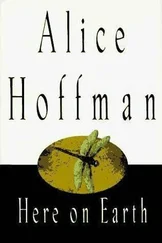Alice Hoffman - The Dovekeepers
Здесь есть возможность читать онлайн «Alice Hoffman - The Dovekeepers» весь текст электронной книги совершенно бесплатно (целиком полную версию без сокращений). В некоторых случаях можно слушать аудио, скачать через торрент в формате fb2 и присутствует краткое содержание. Год выпуска: 2011, ISBN: 2011, Жанр: Историческая проза, на английском языке. Описание произведения, (предисловие) а так же отзывы посетителей доступны на портале библиотеки ЛибКат.
- Название:The Dovekeepers
- Автор:
- Жанр:
- Год:2011
- ISBN:978-1-4516-1749-8
- Рейтинг книги:2.5 / 5. Голосов: 2
-
Избранное:Добавить в избранное
- Отзывы:
-
Ваша оценка:
- 60
- 1
- 2
- 3
- 4
- 5
The Dovekeepers: краткое содержание, описание и аннотация
Предлагаем к чтению аннотацию, описание, краткое содержание или предисловие (зависит от того, что написал сам автор книги «The Dovekeepers»). Если вы не нашли необходимую информацию о книге — напишите в комментариях, мы постараемся отыскать её.
The Dovekeepers — читать онлайн бесплатно полную книгу (весь текст) целиком
Ниже представлен текст книги, разбитый по страницам. Система сохранения места последней прочитанной страницы, позволяет с удобством читать онлайн бесплатно книгу «The Dovekeepers», без необходимости каждый раз заново искать на чём Вы остановились. Поставьте закладку, и сможете в любой момент перейти на страницу, на которой закончили чтение.
Интервал:
Закладка:
He did not move as Yael approached, nor did he shrink from her. Perhaps he did not maul her because he had been broken, taken from his land, abused, unable to act like a lion. Or perhaps he was merely waiting for a messenger from God, as we wait for Gabriel.
Yael now came close enough to unhook the brass buckle which fitted the creature’s collar to his chain. I could not breathe or move. I imagined he would turn on her then and I would see her death before my eyes. Instead the lion rose to his feet and stood before her. He stared at Yael with his yellow eyes, more curious than ferocious. He may have thought she was one of his own kind and wondered if she meant to accompany him. He may have believed she was a dream, for if lions dreamed it would surely be this, freedom in the night, hands that unleashed you, the mountains before you.
Yael lifted her arms, as we do to bid the doves to take flight. The lion turned to run across the valley, disappearing into the cliffs, his dun color the cloak which allowed him to vanish before our eyes.
I knew then I had witnessed a miracle. I waited where I was, praying, offering gratitude to the Almighty, my faith renewed, while on the valley floor the bravest warrior among us made her way back to our mountain, invisible to all men beneath her gray cloak, but radiant in the darkness, a shining star before the eyes of God.
OUR WARRIORS went out that night to find the soldiers of the legion intoxicated, maddened and half-asleep, for they had mixed the toxic honey with wine to make a mead, and many had drunk from this poison. Our men killed as many as they could before the cries of the slaughtered brought hundreds of soldiers racing. By then the warriors of Masada had begun to climb back up the cliff. Several were lost in the fray and were carried upon the shoulders of their brothers. At least we had their bodies and could prepare their earthly forms for burial. In Jerusalem we would have taken our dead to the caves of our fathers, then a year later collected the bones to be stored in stone ossuaries. Here there was no time for such practices. Though the Romans had retaliated with a storm of burning arrows, we gathered in the plaza to sing lamentations and tear at our garments and lay the dead to rest.
In the midst of our mourning, some among us looked down upon the valley. They saw that the lion had been freed from the chains of Rome to return to the cliffs of Judea. There were shouts and prayers. Crowds gathered, mystified, wondering if it had been Gabriel, the fiercest of the angels, who had brought this omen to us, for surely no man would have dared to approach a lion.
* * *
STILL THE ROMANS built their white ramp, still it rose higher. Though we sent down hot oil, stones, arrows, they continued on, a machine of death intent on victory. In weeks, the ramp was a few arms’ lengths from our walls, and the damage their soldiers could now manage was great. We had many losses and fires occurred every day. Whatever they destroyed with stone and flame we rebuilt, but we hadn’t enough hands, and there were ruins all around us. No one dared to leave the fortress now, or even venture close to the wall. We huddled together in the wind. There was a great silence over us. It was despair, and it passed from one to the other more quickly than a fever.
When Eleazar came to me at night, he did not speak. Though words had always bound us together, they were not enough to save us now. Below us, there was a blur of movement, faster all the time, more purposeful and more brutal. We were reminded of the way in which bees could create entire cities overnight in their hives. So, too, could the legion. Where there had been six thousand, ten thousand now stood before us. The Romans were like an endless swarm. You could not outfight them or outrun them. The only choice was to put salt on your skin, though it might pain you to do so, to cover yourself with a cloak, so that you might disappear.
My beloved cousin had told our people the Romans would move on once they understood a siege could not take us down. We had enough to sustain us, we would be hungry, but it was possible to live in poverty and survive for a year on rations, perhaps two. Surely Rome would tire of us and decide to use the legion’s power to a better purpose. Now that the ramp had risen so high on the western slope, my cousin no longer spoke of such things or gave us false hope. The Angel of Death has a thousand eyes and no man can outdistance him. There have been stories of men who have ridden all night to escape their fate, only to arrive in a far-flung village where the Angel waited, knowing his victim’s destination before the rider himself did. Mal’ach ha-Mavet would find his intended no matter how fast a victim might ride, even if his horse was as swift as my husband’s had been, the great Leba, who held the heart of a thousand horses.
Eleazar and I went to the cistern together after darkness fell, no longer caring who might accuse us of sin. As Death saw us, we saw him in return, even when we closed our eyes. In the water, I embraced my beloved in silence; he winced, for he was freshly wounded and had paid no attention to this injury. I wanted to dress the cut with samtar, but he told me there was no time. When he said this I began to weep, as I had on the day in Jerusalem when it rained and he went to the market to find me the vial of perfume scented with lilies. That had been the last time we saw each other until he had called me to this mountain. Now I was losing him again.
“Don’t,” he said to me as I cried. “There’s no time for that either.”
He had been hardened by his years of fighting. He had been not much more than a boy when I first knew him, now he had killed so many that his hands were stained. Yet tears could undo him and remind him of how human we were. The suffering of the world weighed heavily upon him. I dried my eyes because he asked me to do so. I had always done as he asked, not because I was bound to do so by duty but because I saw the depth of who he was and how he himself suffered. When I gazed at him, I did not see the brutal face his enemies looked upon, or the heavy arms and back of a warrior who carried armor and steel, but the young man at the well who had seen beyond my henna tattoos. He had always known who I was.
Eleazar gathered my hair and lifted it so that he might kiss my throat. Without my amulets, I was unprotected. I felt myself burn. I believed myself to be safe with him. He who was so cruel in the field of battle, was still the boy he once had been, so eager for me that his wife and father and all the laws of Jerusalem could not keep him from me. He whispered that he would prefer to spend what little time we had left in each other’s arms. Let us not speak, or tend to our troubles, let us lie together and forget the world, remembering only each other.
The Romans would find us, as bees did; they would swarm upon us and the salt would fall from our skin and we would be naked and defenseless before them, as we now were with each other.
WHEN WE rose from our restless sleep, we found that the ramp on the western side of the mountain was already completed. It was a cool day, misty and blue. Already the month of Nissan was upon us, when our people celebrated their freedom. When we opened our eyes, it was as though the ramp had always been there, magicked into being, more real than the mountains that had stood since God created them.
On that same day the dust rose up along the desert floor when a group of travelers from the east arrived. I saw that many of their cloaks were blue. They belonged to the people of Nahara and Adir’s father, nomads from the hills of Moab. They had brought all manner of spices and treasures from Petra and had come to offer their help to the Romans, with whom they had a treaty of peace. When I regarded these men, my heart fell, for I knew how fierce they were and how difficult they would be to defeat.
Читать дальшеИнтервал:
Закладка:
Похожие книги на «The Dovekeepers»
Представляем Вашему вниманию похожие книги на «The Dovekeepers» списком для выбора. Мы отобрали схожую по названию и смыслу литературу в надежде предоставить читателям больше вариантов отыскать новые, интересные, ещё непрочитанные произведения.
Обсуждение, отзывы о книге «The Dovekeepers» и просто собственные мнения читателей. Оставьте ваши комментарии, напишите, что Вы думаете о произведении, его смысле или главных героях. Укажите что конкретно понравилось, а что нет, и почему Вы так считаете.












